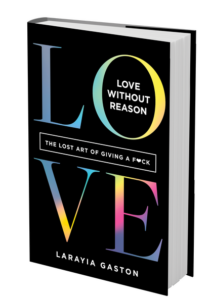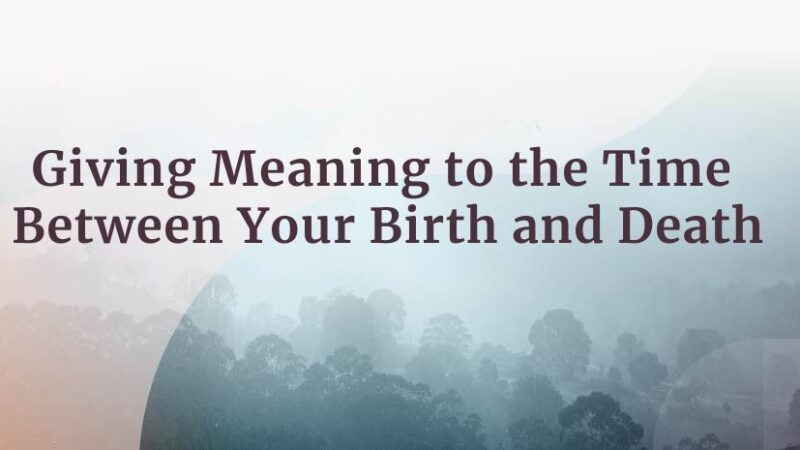-
E107: Becoming Okay Inside
Michael Singer — August 28, 2025
The fundamental spiritual question is not “How do I be okay?” It is “Why am I not okay?” Our ...
-
Andrew Holecek: What Reincarnates? | Part 2
Andrew Holecek — August 26, 2025
Join Tami Simon and Andrew Holecek for the second half of their exploration of reincarnation. Here,...
-
Honey Tasting Meditation: Build Your Relationship with Sweetness
There is a saying that goes “hurt people hurt people.” I believe this to be true. We have been...
Written by:
Amy Burtaine, Michelle Cassandra Johnson
-
Many Voices, One Journey
The Sounds True Blog
Insights, reflections, and practices from Sounds True teachers, authors, staff, and more. Have a look—to find some inspiration and wisdom for uplifting your day.
Standing Together, and Stepping Up
Written By:
Tami Simon -
The Michael Singer Podcast
Your Highest Intention: Self-Realization
Michael Singer discusses intention—"perhaps the deepest thing we can talk about"—and the path to self-realization.
This Week:
Andrew Holecek: What Reincarnates? | Part 2 -
Many Voices, One Journey
The Sounds True Blog
Insights, reflections, and practices from Sounds True teachers, authors, staff, and more. Have a look—to find some inspiration and wisdom for uplifting your day.
Take Your Inner Child on Playdates
Written By:
Megan Sherer
600 Podcasts and Counting...
Subscribe to Insights at the Edge to hear all of Tami's interviews (transcripts available, too!), featuring Eckhart Tolle, Caroline Myss, Tara Brach, Jack Kornfield, Adyashanti, and many more.
Most Recent
MetaAnatomy: The Study and Wonder of You
Kristin Leal is a yoga teacher and a sadhaka in the ISHTA lineage, as well as a licensed massage therapist, Reiki practitioner, and author. Her popular MetaAnatomy workshops, classes, and online trainings blend serious scientific knowledge, a sense of humor, and a deep connection to the divine within us all. With Sounds True, Kristin has written MetaAnatomy: A Modern Yogi’s Practical Guide to the Physical and Energetic Anatomy of Your Amazing Body. In the book, she helps readers develop a new level of body literacy―a deep and vital relationship with the physical, emotional, and energetic aspects of your being. In this podcast, Kristin guides Tami Simon and listeners into the world of wonder that is the human body, as she unpacks elements of our anatomy on physical and poetic levels. Kristin also guides listeners through three fascinating practices, where you’ll learn to experience and regulate your subtle anatomy in profound ways.
S1 E3: Giving Meaning to the Time Between Your Birth a...
The time that we have between our births and our deaths is a great gift. What we do with this time and how we give our lives meaning is the subject of this podcast with Michael Singer. Here, Singer discusses hard yet empowering truths about the fleeting nature of our lives, the inherent flaw in our most common strategies for feeling “okay inside,” why spirituality is never about getting what you want or avoiding what you don’t want, and much more.
For more information, go to michaelsingerpodcast.com.
© Sounds True Inc. Episodes: © 2024 Michael A. Singer. All Rights Reserved.
The Full Spectrum of Awareness
Diana Winston is the director of Mindfulness Education at UCLA’s Mindful Awareness Research Center, where she developed the Mindful Awareness Practices (MAPS) curriculum. With Sounds True, Diana is the author of a new book, The Little Book of Being: Practices and Guidance for Uncovering Your Natural Awareness, and the creator of a new audio teaching series called Glimpses of Being: A Training Course in Expanding Mindful Awareness. In this experiential episode of Insights at the Edge, Diana introduces us to what she calls the “spectrum of awareness” through a series of guided practices. She talks to Tami Simon about the various ways we can access and experience awareness, from narrow and focused to effortless and spacious—states we are constantly moving between. They touch on ways to deepen and explore awareness through “glimpse practices” and discuss how we can work toward making natural awareness our default state. Finally, Diana explains why tapping into the full range of awareness can act as a good antidote for those feeling stuck or restless in their meditation practice.
Customer Favorites
6 Principles for Befriending Yourself: Part II

Enjoy this second installment in our new mini-series of Befriending Yourself, written by Jeff Foster and Matt Licata. Want to go deeper? Join their free webinar on Wednesday, June 5! Be sure to register here.
In our previous excerpt (which you can view here if you missed it!), we discussed the first two principles of befriending yourself:
- STOP TRYING TO BE HAPPY (happiness is not something you can “do”)
- TRUE MEDITATION IS NOT WHAT YOU THINK (it’s what you are)
And now, we move on to Principles 3 and 4…
3. “ONE MOMENT AT A TIME” (this one idea could save your life)
Don’t forget, befriending “what is” can only happen one moment at a time.
Actually, that’s all we ever have to face. A single present moment. Life is never truly bigger or more overwhelming than that. Present sounds, sensations, images, urges, impulses, fantasies, feelings, thoughts… we only ever have to process, digest or “deal with” a single instant of life.
Nothing more, nothing less.
Take some time to become curious about what you’re experiencing in a given moment of activation or trigger or stress, instead of shaming or blaming yourself (or others). Don’t abandon the moment when you need yourself more than ever.
Slow down, breathe deeply, open your senses, and acknowledge that you’ve become hooked, triggered, or thrown off center. You have to start by telling the truth of the moment, even if that’s humbling (which it often will be!). Start with, “I’m feeling overwhelmed,” or “I’m feeling really sad,” or “I feel completely lost and exhausted.” Know that this, too, is a holy moment, an invitation to meet yourself in a new way and to flood your experience with loving awareness. An invitation into that alchemical middle territory where the opposites (good and bad, right and wrong, sacred and profane) dance, where we discover the wisdom of immediate experience, and open to a new more creative response.
This “new, creative response” – choosing differently in a moment of overwhelm and activation – is what in neuroscience is referred to as neuroplasticity, that capacity of the brain to form new synapses, to encode new pathways, to rewire. Slowly, over time, as we familiarize ourselves more and more with this middle territory in between the extremes of denial and flooding, finding an “intimacy without fusion,” we begin to make new choices, fostering the miracle of neuroplasticity and the unlimited capacity of the human person to renew itself. This process, while having a scientific foundation, is in fact sacred, the expression of an outrageous sort of grace.
You don’t need to “be present” all day. Or even for a few minutes.
Don’t make “being present” into any kind of goal.
You only need to be present to a single moment.
Now.
It is essential to remember that staying with yourself for very short periods of time is what brings lasting transformation and change. We don’t need to “get in there” and resolve or root out our difficult experience, transcend, or purge it from our systems. This urge to “get to the root of it” (and quickly) is usually an enactment of earlier patterns of self-aggression and only reinforces in the nervous system that there is truly “something wrong.” By “very short periods of time,” we really do mean for a few seconds. For in that “few seconds” a revolution is born.
Over time, that “few seconds” very naturally expands, grows, and evolves on its own, organically as a byproduct of tending to ourselves in a new way, not from an urgent sense that something is wrong which must be fixed or healed very quickly. Trauma and other difficult experience can only unwind in an environment of love, of slow tending, of kindness. Yes, we can push ourselves a little, for a second or two more than might seem comfortable, for this will help us to build our tolerance and craft a scaffolding of love. But no more than that. Otherwise, we’ll just send ourselves outside our “windows of tolerance” and into overwhelm, retraumatization, all the while reinforcing the requirement that we meet future experience with fight-flight-freeze responses.
In other words, when you resist your experience, even very subtly by “trying” too hard to “be present” with it or even “accept” it, you’re still telling the body, there’s an enemy here, something I’m trying to get rid of. When you slow down and go baby steps, moment by moment, you’re telling the body, it’s okay, I’m safe, this is uncomfortable and intense but I’m present with it, I’m safe. Once this requisite safety and resourcing is built into the nervous system – which happens slowly, one second at a time – then we can more organically, effectively, and compassionately begin to open our hearts to our pain, touch it with deeper levels of warmth, presence, and love, eventually even discovering that our pain is a true friend, an ally on the journey. But we cannot skip stages! We cannot just move straight to acceptance, forgiveness, and love from a field that is unsafe. It is an act of kindness and self-compassion to remember this and to honor where we are. While the mind may tell us, “Oh, just one or two seconds, big deal, can’t you do more than that? That’s not enough, you’ll never heal, you’re going too slowly, you’re falling behind, you’ve failed yet again,” in the reality of the nervous system and the heart, one second is the fertile soil of revolution.
Healing is not a competition. Remember, there is never any goal. There is no urgency on the path of love.
In the field of trauma, “titration” refers to tending to our difficult thoughts, feelings, and raw bodily sensations for a few seconds at a time, then stopping and shifting into a moment of self-nourishment and self-care, and then returning later, when we are ready. Pushing ourselves just a little, nudging ourselves gently into the dark and scary places, but not so much that we fall into overwhelm and flooding or dissociation.
Baby steps are courageous in this work and the material of revolution.
Moment by moment, even our dark and scary experience is bearable.
We cannot tend to the next moment’s pain and intensity, for that is truly overwhelming! We cannot “bear” a future moment of grief or loneliness. Just as we cannot experience or surrender to tomorrow’s sunrise, we cannot tolerate tomorrow’s – or even the next moment’s – fear or sorrow or pain. But we can come to see that this moment’s experience is workable. We can come out of tomorrow’s sadness, the next moment’s depression, and next week’s heartbreak into what is truly here now, which may be a lot more workable and tolerable than you think, not as devastating as you imagine, and in reality only a part of you that longs for a moment of your loving awareness.
A great inner confidence and trust and even joy can build from this. The joy of being alive and knowing we can meet anything life throws at us with courage and breath, slowness and presence. The joy of knowing that the Now is our true home and refuge. The joy of knowing that there is no such thing as a truly “unbearable” moment.
4. SUFFERING IS OPTIONAL (but sometimes pain and grief are inevitable)
What is worse, our pain… or our attempts to escape it (thereby making the pain into an internal enemy, mistake, or error)?
What is worse, our loneliness, fear, or sorrow… or our longing to be free from them, to get rid of them, to purge them from our being?
What is more painful, our pain, or our resistance to it, our refusal to experience it, the ways in which we hurt ourselves (and others) trying to numb ourselves from it? Abandoning ourselves in a moment when we long for true care?
What is worse, our difficult feelings, or the conclusions we’ve come to about what these experiences mean, the voices in the head about what these feelings say about us as a person (“I’m weak, I’m broken, I’m flawed, I’m damaged, I’m not whole, there’s something wrong with me…”) – the ways in which we judge ourselves for being the way we are?
What is worse, the rain as it falls, or our refusal to get wet?
We have come to believe that very ordinary human emotions, thoughts, and urges are in and of themselves the cause of our suffering and struggle. But is it the mere appearance of anger, sadness, disappointment, jealousy, uncertainty, or confusion that is really the problem? Or is it the abandonment of ourselves in the moment when these experiences arise? The shaming and judging of our authentic experience? The habitual conclusions we’ve come to – from our families, cultures, even our spiritualities – about what these very ordinary human experiences mean about us, our value, our worth, our progress along the path?
To take some time in our lives – in our inquiry, meditation, journaling, pondering – and really explore – this is a great gift we can give ourselves (and others). Just what is the source of my struggle and suffering? Is it true that I must convert my sadness to joy, doubt to clarity, rage to happiness, disappointment to gratitude, etc. in order to know true freedom, or is it a more radical invitation I am being called to? To not take anyone’s word for it – including our own! – but to become an alchemist or archaeologist of our own inner world and see.
It can be incredibly liberating and life-giving to discover that the freedom we are longing for is not found from these difficult experiences, but actually in them, at their very core. We continue to be amazed, astonished, and surprised as we witness those we work with as they go into their experience and illuminate this territory – and can be awed at the transformation that many are discovering in this inquiry. As Rumi reminds us, “The cure for the pain is in the pain” – this is a very profound alchemical truth that the ultimate medicine we are seeking is found inside the very wound itself. No, we cannot understand or make sense of this with the mind. But the body knows. The heart knows.
We need not “get rid of,” cure, transform, shift, or “heal” our immediate painful experience in order to be fully alive, connected, and free. When we come to see that it is not the thoughts and feelings, but the process of self-abandonment (turning from ourselves in a moment of activation, stress, or overwhelm and falling into the extremes of denial, repression, dissociation, or engaging in habitual or addictive behavior to cover over our pain) that generates so much of our unnecessary suffering, a new world opens.
Remember, difficult feelings and thoughts are like quicksand. The more you struggle against them, the more they suck you in. As we all know, we can quickly fall down the “rabbit hole” of cascading and looping thoughts and feelings, linking them together and weaving a very convincing story of how we’ve failed, done it wrong, are unlovable, and how there is fundamentally something wrong with us. But slowing down, pausing, feeling our feet on the ground, breathing deeply from our lower belly, we open into a new world. Gently allowing the thoughts and feelings to be here, breathing into them, even if they are intense and uncomfortable. Yes, it may feel counterintuitive to do this, but with some practice, you may come to experience them within the context of a lot of space. Even if they do not “go away,” somehow they release you from their grip when you call off the war and allow them to come and go, as they will by their very nature. Strangely, they may actually be your path to freedom. Release through relaxation, not endlessly “working on yourself” and turning your life into one unending project of self-improvement. We can start to see how even our spiritual and therapy goals can be yet another expression or enactment of a deep and core belief in our unworthiness, where “more” work on ourselves, paradoxically, begins another way to abandon and avoid ourselves as we are.
Of course, a certain amount of pain – physical and emotional – is inevitable, as long as we are alive. But begin to investigate how much of your pain is actually unnecessary. How much of your pain is actually resistance to your pain, thinking about your pain, ruminating on your pain, judging your pain, and judging yourself for having pain. How much of your suffering is actually self-created? You only have to deal with a moment at a time.
We hope you enjoyed this second installment in our new mini-series of Befriending Yourself, written by Jeff Foster and Matt Licata. Want to go deeper? Join their free webinar on Wednesday, June 5! Be sure to register here.
ABOUT THE AUTHORS
JOIN JEFF FOSTER AND MATT LICATA EACH MONTH IN THEIR NEW “BEFRIENDING YOURSELF” MEMBERSHIP SITE: www.befriendingyourself.com

MATT LICATA
Matt Licata, PhD is a psychotherapist, writer, and independent researcher based in Boulder, Colorado. Over the last 25 years, he has been active in the ongoing dialogue between depth psychological and meditative approaches to emotional healing and spiritual transformation.
His psychotherapy and spiritual counseling practice has specialized in working with yogis, meditators, and seekers of all sorts who have come to a dead-end in their spiritual practice or therapy and are longing for a more embodied, creative, imaginative way to participate in their experience, in relationship with others, and in the sacred world.
Matt’s spiritual path and exploration has been interfaith in nature and includes three decades of study and practice in Vajrayana Buddhism, Sufism, Daoism, and Contemplative Christianity. His psychological training and influences have been in the larger field of relational psychoanalysis, Jung’s analytical and alchemical work, and Hillman’s archetypal psychology, to name a few. He is the editor of A Healing Space blog and author of The Path is Everywhere: Uncovering the Jewels Hidden Within You (Wandering Yogi Press, 2017) and the forthcoming A Healing Space: Befriending Yourself in Difficult Times (Sounds True, 2020). His website is www.mattlicataphd.com
JEFF FOSTER
Jeff Foster studied Astrophysics at Cambridge University. In his mid-twenties, struggling with chronic shame and suicidal depression, he became addicted to the idea of “spiritual enlightenment” and began a near-obsessive spiritual quest for the ultimate truth of existence. The search came crashing down one day, unexpectedly, with the clear recognition of the non-dual nature of everything and the discovery of the “extraordinary in the ordinary.” Jeff fell in love with the simple present moment, and was given a deep understanding of the root illusion behind all human suffering and seeking.
For over a decade Jeff has been traveling the world offering meetings and retreats, inviting people into a place of radical self-acceptance and “Deep Rest.” He has published several books in over fifteen languages. His latest book is The Joy of True Meditation: Words of Encouragement for Tired Minds and Wild Hearts (New Sarum Press, 2019). His website is www.lifewithoutacentre.com
The MindBody Code, Part 1
Archetypal Wounds and Their Healing Fields
Mario Martinez is a clinical neuropsychologist and the founder of biocognitive science—a new paradigm that identifies complex discoveries of how our cultural beliefs affect our immune, nervous, and endocrine systems. With Sounds True, he has written a new book called The MindBody Code. In the first half of a two-part interview, Mario spoke with Tami Simon about how our cultural assumptions can affect our health and well-being. They also talked about archetypal wounds of shame, betrayal, and abandonment—as well as their corresponding healing fields of honor, loyalty, and commitment. Finally, Mario and Tami spoke on what means to feel worthy of making meaningful change in one’s life. (61 minutes)
Gratitude Is a Byproduct of Service
Among the lessons I’ve seen people embrace by performing their microgestures is the true meaning of gratitude. Gratitude has become a big idea in certain circles these days, and a lot has been written about research showing that a focus on gratitude has real benefits for people in terms of their mental and physical well-being.3 This is probably why the practice of gratitude journaling has become so popular. You can even buy gratitude journals at your local bookstore ready for you to fill in the blanks about what makes you feel lucky today.
I have to admit that I have a bit of a bone to pick with the gratitude journalers of the world. It’s not that I disagree with the research or the idea that gratitude can be a powerful force. It’s that I think the idea of gratitude, perhaps because it has become so popular, is too often misunderstood.
I don’t believe that gratitude is about sitting in your room and saying thanks so only your walls can hear you. I don’t believe it’s something that should remain in the pages of a journal. I don’t believe it’s something you can find on a bracelet or in an Instagram quote. These can be good ways to remind yourself to be thankful, but they’re not enough. That’s because gratitude isn’t meant to be passive. “God is a verb,” as Paulo Coelho once said in an interview with Oprah Winfrey about his bestselling book, The Alchemist.4 I believe that gratitude, too, needs to be treated as an action.
In fact, we used to talk about gratitude in terms of giving thanks, which makes it sound so much more active, instead of merely being thankful. Rightly so, because I believe gratitude is something you should do, not something you merely think or feel or write about. This means you can’t just read in the news about the hurricane that devastated a town or the drug problem that plagues a community and feel thankful that you’re removed from it and safe. You can’t just walk by people in need and feel sorry for their suffering and grateful that you’re not in the same position. True gratitude is more than just a feeling. It’s the expression of that feeling through action—the action of serving others. To truly be grateful, you have to act gratefully.
It’s a bit like that old philosophical question about whether, if a tree falls in the woods and no one hears it, did it really fall? By the same token, if you love someone but you never express that love, either verbally or through your actions, can you really call it love? If you’re grateful for what you have but never extend that gratitude to others, then are you truly living a grateful life?
When we mindfully show our appreciation for what we have through the action of serving others, then gratitude is the result. It’s the byproduct of that service, and there’s really no other way to get it. We live in a world that loves shortcuts. If there’s a faster, easier, simpler way to get something done, then we’re all over it. People write about “life hacks” as if they’re going to save us, but some things can’t be hacked. I believe that gratitude is one of them.
In the energy exchange, there’s a dynamic between people made up of living, breathing energy that flows back and forth. When that energy stops moving, it dies. Gratitude has an energy behind it too, but I believe that energy dies, or at least atrophies, when we keep it confined to our thoughts and prayers or the pages of our journal. Even sharing grateful thoughts on social media—which I highly encourage as an antidote to all the complaints and judgments that tend to be put on display—is not the same as allowing our gratitude to inspire us to act on behalf of others. Because it’s so often relegated to contexts like these, gratitude is really in danger of losing its meaning.
I was once in a yoga class that was winding down on a hot day when I witnessed a missed opportunity to really live gratitude. We were all sitting in Lotus Position with the lights dimmed and the door open so the breeze could flow through the studio. Soft music was playing in the background and our hands were pressed together at our hearts as we whispered our “namastes.” Just then a man, who appeared to be suffering from mental illness, walked in through the open door to say hello and ask, “What are you all doing in here?” He was friendly
enough, but the reaction was immediate. The people closest to him scattered while others turned away or shook their heads. No one answered him. I meant to, but I didn’t gather my thoughts quickly enough. The teacher rushed over to tell him to leave, pushing him out the door and closing it behind him.
It was as if everyone in the room had forgotten what they’d been doing right before the man walked in. Yoga classes often end with the students saying namaste as an expression of gratitude for the experience they just had, the teacher who guided them through it, and the fellow students they shared it with. But it’s also generally considered to have spiritual connotations, to be a conscious acknowledgment of another person’s soul, of the divine light that resides in all of us. Some literally translate namaste from Sanskrit to mean: “The light in me acknowledges the light in you.”
I guess my fellow classmates decided that not everyone was worthy of a namaste. I don’t mean to be overly harsh. I get why people were frightened, as they often are by mental illness, or turned off by the disruption when they were in the midst of a peaceful moment. But if we’d all taken a moment to simply notice this man (an act of non-resistance), I think it would have quickly become clear that he meant us no harm. He was just curious and, I think, lonely. It seemed like what he wanted most of all was someone to talk to, and here he’d found a group of people expressing gratitude in a tranquil place. We can perhaps forgive him for thinking we were the kind of people who might be receptive to his attempt to connect.
We live in an amazing time. Being part of the Information Age gives us exposure to all kinds of wisdom and ancient teachings along with all the new. Yoga has been practiced for hundreds of years. Verses on gratitude can be found in the Bible. There is truth and power in these old ways, but let’s make sure we’re getting the most out of them. These ancient concepts should be more than just things you think to yourself or utter on autopilot. If we really want the benefits, we need to learn how to live them.
If you are grateful for something in your life, you have to find a way to put some of that grateful energy back into the world instead of holding onto it. That’s the only way to keep it flowing. That’s the only way gratitude can come back to you. If you have your antenna up while you perform your microgestures, you’ll start to notice the flow and you’ll start to better appreciate when some of it flows back your way.
❤ HEARTWORK ❤
Ask yourself: How can I do more than just think grateful thoughts? How can I act gratefully in the world today?
If you keep a gratitude journal, consider recording not just what you’re thankful for, but the full energy exchange: what you’re grateful for and what you gave gratefully in return.
Notes:
- Colby Itkowitz, “The Science Behind Why You Shouldn’t Stop Giving Thanks After Thanksgiving,” The Washington Post (November 24, 2016).
- Paulo Coelho, “What if the Universe Conspired in Your Favor?” Oprah’s SuperSoul Conversations (August 9, 2017).
This is an excerpt from Love Without Reason: The Lost Art of Giving a F*ck by LaRayia Gaston.
 LARAYIA GASTON is a former model, actress, and founder of the nonprofit Lunch On Me, an organization dedicated to bringing organic, healthy food and holistic healing to those experiencing homelessness. She’s also a regular public speaker, podcast guest, and activist. She resides in Los Angeles. For more, visit lunchonme.org.
LARAYIA GASTON is a former model, actress, and founder of the nonprofit Lunch On Me, an organization dedicated to bringing organic, healthy food and holistic healing to those experiencing homelessness. She’s also a regular public speaker, podcast guest, and activist. She resides in Los Angeles. For more, visit lunchonme.org.
 Sounds True | Amazon | Barnes & Noble | Indiebound | Bookshop
Sounds True | Amazon | Barnes & Noble | Indiebound | Bookshop





